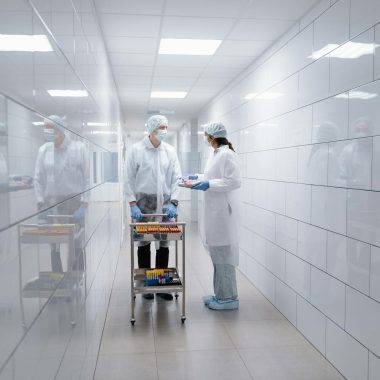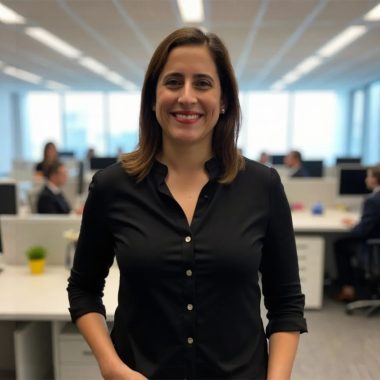Cancer diagnosis errors present a significant challenge in healthcare, with misdiagnosis rates reaching alarming levels for certain types of cancer. Frederic Scheer, through his company ALERCELL, is addressing this critical issue by combining rigorous scientific methods with artificial intelligence. His approach focuses not only on improving diagnostic accuracy but also on shifting toward preventative screening, potentially transforming cancer treatment outcomes for patients worldwide.
Highlighting Patient Vulnerability
Cancer diagnosis isn’t just another medical procedure. For patients receiving this news, accuracy isn’t optional – it’s essential. “People are very vulnerable. The patient is vulnerable, the family is vulnerable,” Frederic explains. “The doctor needs to come with certitude, not ‘we believe, such and such.’ It needs to make sure that when he announces a diagnosis, the diagnosis is correct 100%.” The consequences of getting it wrong are devastating. “We all know the horror story of false negatives, false positives,” he says. Wrong diagnoses can lead to unnecessary treatments with serious side effects. “The type of treatments we’re talking about in cancer are very heavy and grueling. Chemotherapy, radiation… sometimes those treatments can have devastating consequences.”
Using Methylation for Better Detection
What sets ALERCELL apart is their focus on alternative biological markers. While many companies concentrate on DNA mutations and fusions, Frederic’s team is exploring methylation – an epigenetic process with unique advantages. “Methylation serves as a valuable biomarker; however, unlike DNA fusions or mutations—which are permanent—methylation is reversible,” Frederic points out. This distinction matters tremendously for treatment options. “When you have DNA fusion or mutation in cancer, the only way of getting rid of the problem is to kill the cell,” he says. That’s where traditional treatments like chemotherapy come in. But with methylation markers, “you can have prophylactic type of treatment, or more sophisticated immunotherapy working with CRISPR gene editing.”
Amplifying Medical Insight with AI
Central to ALERCELL’s approach is their use of artificial intelligence, which Frederic describes as an “amplifier of knowledge” rather than a replacement for medical professionals. “There is a lot of misconception about artificial intelligence where people say, ‘AI is going to replace doctors.’ No, artificial intelligence will not replace the doctor or scientist,” he states firmly. “Artificial intelligence is almost like a scalpel. It’s a new tool, a more sophisticated tool that’s going to allow us to detect biomarkers and modifications in your genome that my brain and my eye will not be able to detect.”
The technology helps address a fundamental limitation in cancer diagnostics. “When you get cancer, you go through a tremendous amount of testing – MRIs, blood tests, a lot of different types of tests,” Frederic explains. “A doctor is not in a position to analyze all the information simultaneously. AI can summarize the whole situation very quickly because it’s able to understand everything together.”
Shifting Toward Early Screening
Frederic’s vision extends beyond improving diagnosis to fundamentally changing our approach to cancer. “What I would like in a perfect world is going from diagnostic to screening,” he says. “If we create screening systems allowing us to screen young children at low cost, we’ll know if they’re at risk of developing leukemia down the road.” The benefits would be twofold: better outcomes and lower costs. “When people are diagnosed with cancer at stage zero or stage one, 88% will walk free of cancer within one to two years with no grueling treatment,” Frederic explains. “It’s significantly less expensive to treat somebody prior to illness than after illness.”
In Frederic’s view, this shift is essential to truly patient-centered care. “We need to keep in mind that healthcare needs to be patient centric because at the end of the day, we’re working for the patient.”
Connect with Frederic Scheer on LinkedIn to stay up to date with his work on revolutionizing cancer diagnostics.







